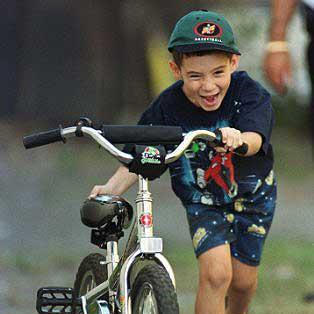|
Divorce - A Subtle Form Of Child Abuse Can children of divorced couples live happily ever after? That's the provocative question psychologist Judith Wallerstein began exploring nearly three decades ago with more than 100 kids whose parents had recently split up. Her ominous results were the subject of her 1989 best seller, "Second Chances: Men, Women and Children a Decade After Divorce." She concluded at that time that the effects of divorce were lifelong and traumatic for children. While their parents might feel liberated by getting out of an unhappy marriage, the kids were bereft. In interviews, many expressed a profound pessimism about their future. At the time, most of Wallerstein's interviewees were in their teens or early 20s ‹ still young enough to reinvent themselves. To see what's happened since then, she tracked down close to 80 percent of the "kids" (now 28 to 43 years old) for her new book, "The Unexpected Legacy of Divorce: A 25 Year Landmark Study" (347 pages. Hyperion). There's some good news in this update. A surprising number of the subjects of her original study eventually found some fulfillment in their own work and family lives. Nonetheless, she writes, "whether the final outcome is good or bad, the whole trajectory of an individual's life is profoundly altered by the divorce experience." And the pain, she says, is not diminished by the fact that divorce is much more common than it used to be: "Each child in a classroom half full of children of divorce cries out, `Why me?' " The pain of divorce, the author notes, is not diminished by the fact that divorce is much more common than it used to be. In her new book Wallerstein tells the stories of five of these divorce survivors (all with pseudonyms and details of their personal histories disguised). Some of the stories are quite moving and recognizable to anyone who's suffered through the failure of a marriage. Yes, there can be happy endings. But the sad memories never completely fade away. Later on Wallerstein writes, "Anxiety leads many into making bad choices in relationships, giving up hastily when problems arise." They struggle because they lack what Wallerstein calls an "internal template" of a successful relationship. Those who do make it emerge "stronger for their struggles," she says. So the answer to her original question is yes, there can be happy endings. But the sad memories never completely fade away.. ..
|

